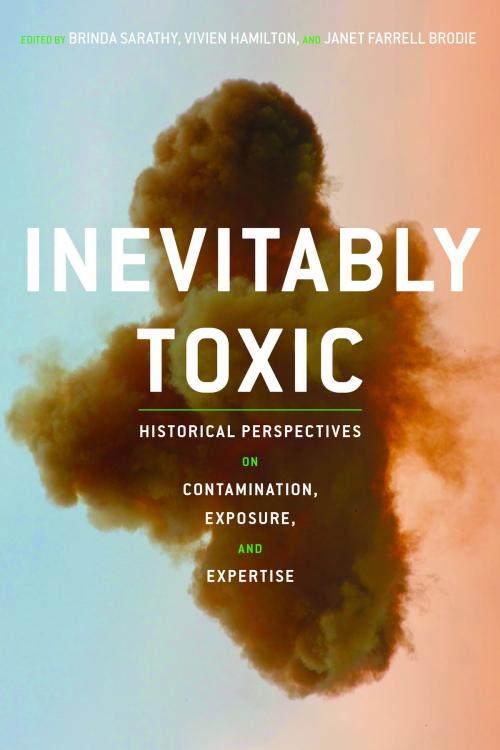Inevitably Toxic
Historical Perspectives on Contamination, Exposure, and Expertise
Nonfiction, Science & Nature, Science, Biological Sciences, Environmental Science, Other Sciences, History| Author: | ISBN: | 9780822986232 | |
| Publisher: | University of Pittsburgh Press | Publication: | October 16, 2018 |
| Imprint: | University of Pittsburgh Press | Language: | English |
| Author: | |
| ISBN: | 9780822986232 |
| Publisher: | University of Pittsburgh Press |
| Publication: | October 16, 2018 |
| Imprint: | University of Pittsburgh Press |
| Language: | English |
Not a day goes by that humans aren’t exposed to toxins in our environment—be it at home, in the car, or workplace. But what about those toxic places and items that aren’t marked? Why are we warned about some toxic spaces’ substances and not others? The essays in Inevitably Toxic consider the exposure of bodies in the United States, Canada and Japan to radiation, industrial waste, and pesticides. Research shows that appeals to uncertainty have led to social inaction even when evidence, e.g. the link between carbon emissions and global warming, stares us in the face. In some cases, influential scientists, engineers and doctors have deliberately “manufactured doubt” and uncertainty but as the essays in this collection show, there is often no deliberate deception. We tend to think that if we can’t see contamination and experts deem it safe, then we are okay. Yet, having knowledge about the uncertainty behind expert claims can awaken us from a false sense of security and alert us to decisions and practices that may in fact cause harm.
Not a day goes by that humans aren’t exposed to toxins in our environment—be it at home, in the car, or workplace. But what about those toxic places and items that aren’t marked? Why are we warned about some toxic spaces’ substances and not others? The essays in Inevitably Toxic consider the exposure of bodies in the United States, Canada and Japan to radiation, industrial waste, and pesticides. Research shows that appeals to uncertainty have led to social inaction even when evidence, e.g. the link between carbon emissions and global warming, stares us in the face. In some cases, influential scientists, engineers and doctors have deliberately “manufactured doubt” and uncertainty but as the essays in this collection show, there is often no deliberate deception. We tend to think that if we can’t see contamination and experts deem it safe, then we are okay. Yet, having knowledge about the uncertainty behind expert claims can awaken us from a false sense of security and alert us to decisions and practices that may in fact cause harm.















